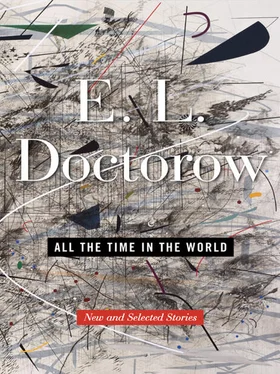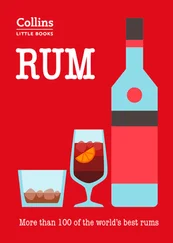Meanwhile my father was going about the triumph of his life, running a farm according to the most modern principles of scientific management, astonishing his peasants and angering the other farmers in the region with his success. The sun brought up his crops, the Galician Agricultural Society gave him an award for the quality of his milk, and he lived in the state of abiding satisfaction given to individuals who are more than a match for the life they have chosen for themselves. I had incorporated him into the universe of giant powers that I, a boy, experienced in the changes of the seasons. I watched bulls bred to cows, watched mares foal, I saw life come from the egg and the multiplicative wonders of mudholes and ponds, the jell and slime of life shimmering in gravid expectation. Everywhere I looked, life sprang from something not life, insects unfolded from sacs on the surface of still waters and were instantly on the prowl for their dinner, everything that came into being knew at once what to do and did it unastonished that it was what it was, unimpressed by where it was, the great earth heaving up its bloodied newborns from every pore, every cell, bearing the variousness of itself from every conceivable substance that it contained in itself, sprouting life that flew or waved in the wind or blew from the mountains or stuck to the damp black underside of rocks, or swam or suckled or bellowed or silently separated in two. I placed my father in all of this as the owner and manager. He lived in the universe of giant powers by understanding it and making it serve him, using the daily sun for his crops and breeding what naturally bred, and so I distinguished him in it as the god-eye in the kingdom, the intelligence that brought order and gave everything its value. He loved me and I can still feel my pleasure in making him laugh, and I might not be deceiving myself when I remember the feel on my infant hand of his unshaved cheek, the winy smell of his breath, the tobacco smoke in his thick wavy hair, or his mock-wondering look of foolish happiness during our play together. He had close-set eyes, the color of dark grapes, that opened wide in our games. He would laugh like a horse and show large white teeth. He was a strong man, stocky and powerful — the constitution I inherited — and he had emerged as an orphan from the alleys of cosmopolitan eastern Europe, like Darwin’s amphibians from the sea, and made himself a landowner, a husband and father. He was a Jew who spoke no Yiddish and a farmer raised in the city. I was not allowed to play with village children, or to go to their crude schools. We lived alone, isolated on our estate, neither Jew nor Christian, neither friend nor petitioner of the Austro-Hungarians, but in the pride of the self-constructed self. To this day I don’t know how he arranged it or what hungering rage had caused him to deny every classification society imposes and to live as an anomaly, tied to no past in a world that, as it happened, had no future. But I am in awe that he did it. Because he stood up in his life he was exposed to the swords of Mongol horsemen, the scythes of peasants in revolution, the lowered brows of monstrous bankers, and the cruciform gestures of prelates. His arrogance threatened him with the cumulative power of all of European history, which was ready to take his head, nail it to a pole, and turn him into one of the scarecrows in his fields, arms held stiffly out toward life. But when the moment came for this transformation, it was accomplished quite easily, by a word from his son. I was the agency of his downfall. Ancestry and myth, culture, history, and time were ironically composed in the shape of his own boy.
I WATCHED HER for several days. I remembered the rash of passion on her flesh. I was so ashamed of myself that I felt continuously ill, and it was the vaguest, most diffuse nausea, nausea of the blood, nausea of the bone. In bed at night I found it difficult breathing, and terrible waves of fever broke over me and left me parched in my terror. I couldn’t purge from my mind the image of her overthrown body, the broad whitenesses, her shoed feet in the air; I made her scream ecstatically every night in my dreams and awoke one dawn in my own sap. That was the crisis that toppled me, for in fear of being found out by the maid and by my mother, for fear of being found out by them all as the archcriminal of my dreams, I ran to him, I went to him for absolution, I confessed and put myself at his mercy. Papa, I said. He was down by the kennels mating a pair of vizslas. He used this breed to hunt. He had rigged some sort of harness for the bitch so that she could not bolt, a kind of pillory, and she was putting up a terrible howl, and though her tail showed her amenable, she moved her rump away from the proddings of the erect male, who mounted and pumped and missed and mounted again and couldn’t hold her still. My father was banging the fist of his right hand into the palm of his left. Put it to her, he shouted, come on, get it in there, give it to her. Then the male had success and the mating began, the female standing there quietly now, sweat dripping off her chops, an occasional groan escaping from her. And then the male came, and stood front paws on her back, his tongue lolling as he panted, and they waited as dogs do for the detumescence. My father knelt beside them and soothed them with quiet words. Good dogs, he said, good dogs. You must guard them at this time, he said to me, they try to uncouple too early and hurt themselves. Papa, I said. He turned and looked at me over his shoulder as he knelt beside the dogs, and I saw his happiness, and the glory of him in his work pants tucked into a black pair of riding boots and his shirt open at the collar and the black hair of his chest curled as high as the throat, and I said, Papa, they should be named Mama and Ledig. And then I turned so quickly I do not even remember his face changing, I did not even wait to see if he understood me, I turned and ran, but I am sure of this — he never called after me.
There was a sunroom in our house, a kind of conservatory with a glass outer wall and slanted ceiling of green glass framed in steel. It was a very luxurious appointment in that region, and it was my mother’s favorite place to be. She had filled it with plants and books, and she liked to lie on a chaise in this room and read and smoke cigarettes. I found her there, as I knew I would, and I gazed at her with wonder and fascination because I knew her fate. She was incredibly beautiful, with her dark hair parted in the center and tied behind her in a bun, and her small hands, and the lovely fullness of her chin, the indications under her chin of some fattening, like a quality of indolence in her character. But a man would not dwell on this as on her neck, so lovely and slim, or the high modestly dressed bosom. A man would not want to see signs of the future. Since she was my mother it had never occurred to me how many years younger she was than my father. He had married her out of the gymnasium; she was the eldest of four daughters and her parents had been eager to settle her in prosperous welfare, which is what a mature man offers. It is not that the parents are unaware of the erotic component for the man in this sort of marriage. They are fully aware of it. Rectitude, propriety, are always very practical. I gazed at her in wonder and awe. I blushed. What? she said. She put her book down and smiled and held out her arms. What, Willi, what is it? I fell into her arms and began to sob and she held me and my tears wet the dark dress she wore. She held my head and whispered, What, Willi, what did you do to yourself, poor Willi? Then, aware that my sobs had become breathless and hysterical, she held me at arm’s length — tears and snot were dribbling from me — and her eyes widened in genuine alarm.
That night I heard from the bedroom the shocking exciting sounds of her undoing. I have heard such terrible sounds of blows upon a body in Berlin after the war, Freikorps hoodlums in the streets attacking whores they had dragged from the brothel and tearing the clothes from their bodies and beating them to the cobblestones. I sat up in bed, hardly able to breathe, terrified, but feeling undeniable arousal. Give it to her, I muttered, banging my fist in my palm. Give it to her. But then I could bear it no longer and ran into their room and stood between them, lifting my screaming mother from the bed, holding her in my arms, shouting at my father to stop, to stop. But he reached around me and grabbed her hair with one hand and punched her face with the other. I was enraged, I pushed her back and jumped at him, pummeling him, shouting that I would kill him. This was in Galicia in the year 1910. All of it was to be destroyed anyway, even without me.
Читать дальше












